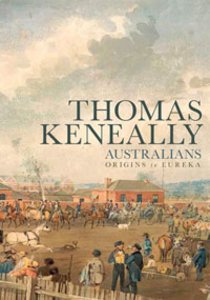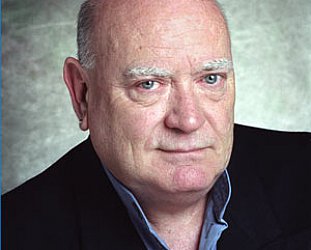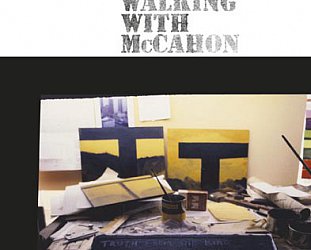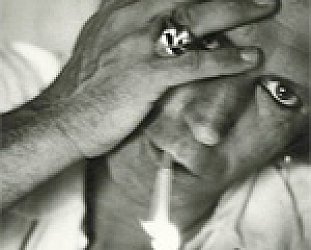Graham Reid | | 2 min read

Among the many peculiarities in this wrinkled history of the Australian people -- from pre-European times through the First Fleet and up to the Eureka Stockade -- is that one of the first strikes in the fledgling colony was by Indian "coolies" who had been imported in the 1830s to be what was in fact, slave labour.
These truculent Indians wouldn't tolerate the irregularity of their modest wage, their terrible conditions, and the inapporpriate food (meat and flour, not rice and dholl as their contracts stipulated), so they simply stopped work.
The Australian newspaper noted sourly these ungrateful imports were more expensive than the Irish, and soon employers started thinking about getting in Chinese labourers who might be less unruly.
This passing mention in Thomas Keneally's exhaustive history is emblemmatic of his attention to detail -- and most notably to a history that is of ordinary people not the great tides of politics or about those at the top whose names are written large and often in more conventional histories.
All that is here too, but Keneally (interviewed here) wants you to feel the pains and see the sweat, and to understand just how this remote colony was forged through the labour of those who fetched up on those shores . . . those who saw themselves as political prisoners, the common thieves, ordinary soldiers and prostitutes who started creating a "criminal colony" but within a few years had also established something approaching a national character.
Keneally's pages are full of stories of rogues and heroes, and of the political hotbed that was Old Sydney Town when wave upon wave of Scottish and Irish dissenters, pamphleteers and radicals were deported from England. He is sympathetic to the populations of Aborigines who first encountered, then endured and were subsequently massacred by these waves of migrants.
There is brutality in these pages and Keneally doesn't flinch from describing the lice and flea-infected stragglers who came ashore in those first vessels, nor of the brutality of the indifferent landscape. Or that inflicted upon them by their peers.
Real heroes are few in those early years but the first governor Arthur Phillip who arrived on one of the first vessels of the convict fleet stands out as a remarkable character -- initially at least -- and as a man who was sympathetic to the Aborginals he encountered, genuinely curious about them, willing to compromise, and fair-minded when it came to punishing transgressors in settlements. There would be no slavery in this new colony he vowed.
Of course in years to come --- as those Indian coolies discovered -- there was something so similar as to be negligibly different. But out of this brutal place a nation was born.
Keneally takes this first of three projected volumes up to the Eureka uprising because here was the real flowering of important democratic processes being establlished, the notion of a nation apart and how it would have to create its own codes of conduct and liberal institutions.
Forgiveably perhaps in a project of this scale, characters come and go -- some disappearing for many dozens of pages -- so the reader is forced to flick back and forth. But this is history as a living and smelly thing, and Keneally wears his colours proud. On occasion his authorial voice comes through.
In the final pages with the shameful events of the Eureka battle starting to recede -- although the wounds were still raw many decades later -- Keneally, a proud and active republican, notes: "For Australia now seemed to the vast majority of its people -- other than indigenes -- a forum where crises could be resolved by constitutional and moral means. What would become an endemic cyncism about politics and the venality and jobbery of individual politicians had not yet possessd the souls of citizens".
More of that in the subsequent, and much anticipated, volumes . . .







post a comment